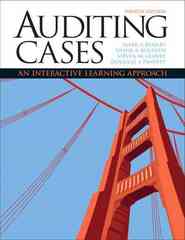Question
Review the In the News How Ticket Resellers Help Allocate Scarce Resources on pages 146-147 of your text. Answer both of the Questions to Discuss
Review the In the News "How Ticket Resellers Help Allocate Scarce Resources" on pages 146-147 of your text. Answer both of the Questions to Discuss . 150wordcount
In The News: How Ticket Resellers Help Allocate Scarce Resources
Is ticket reselling a scourge or a way to make markets more efficient?
Scalping Isn't ScammingBy Tracy C. Miller
The cost of tickets to the Broadway musical "Hamilton" skyrocketed at one point over the summer as scalpers charged $1,000 or more for tickets to the show, when the average ticket's face value was $189 . In response, Sen. Chuck Schumer (D-NY) is proposing federal legislation that would prohibit the use of software to facilitate ticket scalping. Do we really need legislation to curb this practice?
Scalpers are using bots to buy up a large share of tickets online before the public gets a chance to purchase them. Then they resell those tickets for much higher prices. This is a modern twist on a practice that has long been demonized by the public and legislators.
Scalping certainly results in some consumers paying higher prices than they otherwise would. But in exchange for high prices, consumers can get the tickets they want, when they want them, without waiting in line or competing to be among the first to buy them online at a given time. Opponents mistakenly conclude that high prices are the fault of scalpers, when in fact prices are high because of a large demand and a limited supply.
At present, no federal laws limit scalping, but 15 states have laws that prohibit scalping in at least some circumstances. Another seven states require a seller to have a license to broker a ticket, and some limit how much ticket brokers can mark up the price of tickets. Some states don't allow scalping within a specified distance of the venue where an event is held. Others allow reselling tickets purchased for personal use, while prohibiting anyone not registered as a broker from buying and selling tickets for a profit.
Scalping benefits the scalper and the buyer, by getting tickets to whomever values them most highly. If someone decides at the last minute to attend a play, a concert or a game, they can find tickets at some price. Without scalpers, some people who value the event highly would be unable to buy tickets for seats of the quality they desire.
Scalping can also benefit ticket producers—the sports teams or performing artists who supply tickets—in two ways. First, it enables them to earn ticket revenue through face-value prices long before an event, while scalpers bear the risk that demand and prices might fall below the price they paid. Second, because of scalpers, the initial demand for tickets may be higher than it would otherwise be, enabling ticket producers to charge more.
Ticket producers incur expenses long before an event, such as the cost of renting an arena. They can keep their selling costs down by selling all or most tickets quickly rather than over an extended period of time. By buying tickets when they first become available and holding an inventory to sell at times that are most convenient to consumers, scalpers connect buyers with sellers and benefit both. They act as brokers, and the difference between the price they pay and the price they receive is their reward for doing this. The more scalpers compete to buy and resell tickets, the lower the markup that each will earn.
If scalpers are few in number and skilled at assessing each consumer's demand for tickets, they can charge each consumer a price close to the maximum he or she is willing to pay. The higher the average price they can charge per ticket, the more they can pay to the team or performing artists who produce the tickets.
Scalping does alienate some consumers who pay higher prices to buy from scalpers who got to the ticket site before they did. As a result, these consumers may be less willing to attend future events. If performing artists or sports teams want to avoid alienating their loyal customers, they can choose their method of distributing tickets to accomplish that goal, such as by setting aside a percentage of tickets to sell at what they consider a reasonable price to those customers. In many cases, though, ticket producers may prefer to lock-in a high price and sell all their tickets quickly, which may mean selling a large percentage of their tickets to scalpers.
Theo Wargo/WireImage/Getty Images
Lin-Manuel Miranda as Hamilton
Laws to prevent scalping are unnecessary and prevent mutually beneficial transactions. Scalping only occurs when original ticket sellers charge a price that's lower than some consumers are willing to pay. If scalpers use software that's efficient at buying and selling tickets, it will save time and effort and each party involved in the process benefits. In one way or another, the ticket producer, the scalper and the people who attend the event will each be better off.
1. Why do you think the producers of Hamilton charge much less for tickets than the ticket resellers charge?
2. Do you think there should be laws against reselling tickets above their face value? Why or why not?
Step by Step Solution
There are 3 Steps involved in it
Step: 1
1 The producers of Hamilton may charge much less for tickets than ticket resellers because they aim ...
Get Instant Access to Expert-Tailored Solutions
See step-by-step solutions with expert insights and AI powered tools for academic success
Step: 2

Step: 3

Ace Your Homework with AI
Get the answers you need in no time with our AI-driven, step-by-step assistance
Get Started


